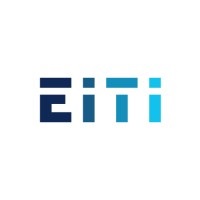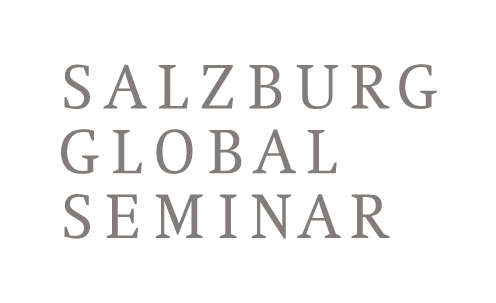The 2023 GlobeScan-SustainAbility Sustainability Leaders Survey offers insights into sustainability leadership and the integration of sustainability into business strategies. The survey underscores the importance of sustainability as a global concern, requiring the collective efforts of governments, civil society, and businesses to establish a more sustainable and regenerative future.
Key points
- Sustainability Integration Takes Center Stage: The survey reveals a shift in how sustainability leadership is measured. Instead of focusing solely on specific sustainability initiatives, experts increasingly prioritize integrating sustainability into a company’s overall business strategy. This means embedding sustainability considerations into core decision-making processes, operations, and long-term goals.
- Deforestation Makes its Debut: For the first time, deforestation was included in the survey and ranked among the top five most urgent sustainability issues. This highlights the growing concern about the impact of deforestation on climate change, biodiversity loss, and livelihoods.
- Top Sustainability Issues Remain Consistent: Other issues consistently ranking high in urgency include biodiversity loss, water scarcity, poverty, food security, and water pollution. These issues represent complex and interconnected challenges that require comprehensive and collaborative solutions.
- Business Action on Sustainability Increasing: Despite ongoing challenges, the survey finds that companies, governments, and NGOs are taking more and more action to address sustainability issues. This includes setting ambitious sustainability goals, investing in renewable energy, and developing innovative solutions.
- Geopolitical and Economic Headwinds Present Challenges: The global economic slowdown, the war in Ukraine, and rising backlash against sustainability and ESG (environmental, social, and governance) factors create headwinds for progress. However, the survey emphasizes the long-term importance of sustainability and the need for continued action even amidst these challenges.
The 2023 GlobeScan-SustainAbility Sustainability Leaders Survey is a comprehensive report that reflects the views of over 500 sustainability professionals from 63 countries. It provides valuable insights into sustainability leadership, which can effectively guide the strategies of businesses, governments, and NGOs. The complete report and accompanying webinar are available on the GlobeScan website. Conducted by the GlobeScan-SustainAbility Institute by ERM, the survey highlights the need to understand and apply sustainable practices in our fast-paced world.
Key Findings
Offers insights into the current state of sustainability and organisations’ actions. It highlights the ongoing urgency of sustainability issues, legislative catalysts’ role, corporate rankings’ consistency, and the demand for transformative leadership. These findings can help organizations improve their sustainability efforts and influence the global sustainability agenda.
- Urgency of Sustainable Development Challenges: The survey indicates that sustainability issues, such as climate change, biodiversity loss, water scarcity, poverty, and food security, remain consistently high. Climate change remains the most pressing challenge, with deforestation ranking among the top five.
- Legislative Initiatives and Disclosure Frameworks: The survey highlights new sustainability legislation, improved disclosure standards, and international agreements as catalysts. Notable actions include the EU Green Deal, European Disclosure Laws, and the U.S. Inflation Reduction Act (IRA).
- Corporate and NGO Leadership: Corporate rankings remain stable, with Patagonia as the top leader in 2023. The World Wildlife Fund (WWF) continues to lead among NGOs, recognized for collaboration and stakeholder engagement.
- Transformative Leadership and Collaboration: The survey emphasizes the need for transformative leadership beyond compliance. NGOs are recognized for collaborations, suggesting the importance of acting as convenors.
Urgency of Sustainable Development Challenges
Highlights the ongoing importance of addressing sustainability challenges. Climate change, biodiversity loss, water scarcity, poverty, and food security remain urgent. Deforestation has now become one of the top five concerns. Legislative actions such as the EU Green Deal and COP15 significantly impact the sustainability agenda. These insights offer a comprehensive understanding of sustainability challenges and the required actions for effective solutions.
Breakthrough Sustainability Developments
Emphasizes constructive steps, including legislative progress, improved disclosure norms, global biodiversity structures, and collaborative initiatives. Notable advancements include the U.S. Inflation Reduction Act, the ISSB, and the Global Biodiversity Framework. These milestones suggest a shift towards more comprehensive sustainability strategies, nature-focused solutions, and collaborative efforts.
NGO Leaders
Examines the characteristics of NGO leadership, such as commitment, collaboration, scale, activism, and effective communication. Views differ across regions and sectors. NGOs are acknowledged for their role in transformative change and stakeholder engagement. These insights provide helpful advice for NGOs aiming to strengthen their leadership in sustainable development.
Corporate Leaders
Spotlights key attributes of corporate leadership. These include sustainability integration, proven impact, commitment, collaboration, and effective communication. Notably, these traits are consistent across various sectors and regions. The importance of transformative leadership and stakeholder engagement is emphasized. These insights aim to guide corporations in enhancing leadership to achieve positive sustainability outcomes.



